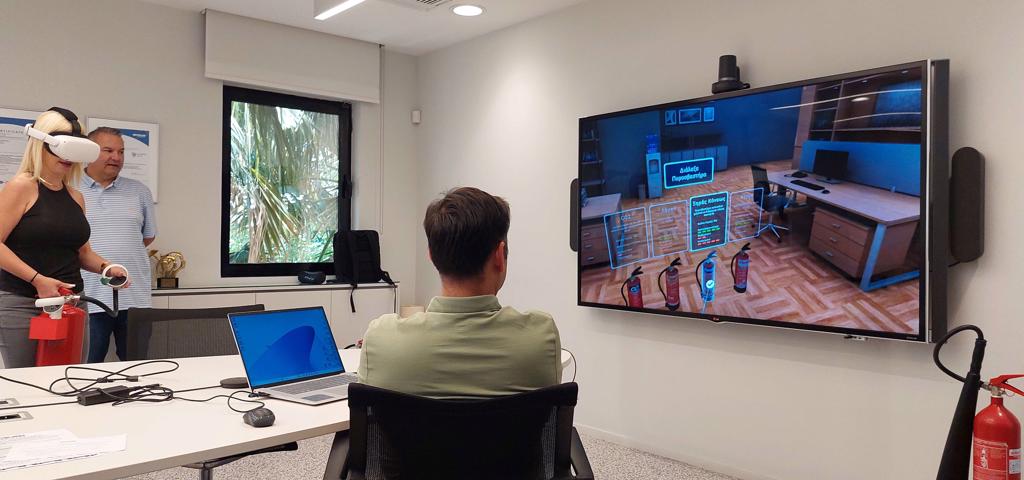
The rise of PropTech and its impact on real estate professionals
As technology is reshaping industries across the globe, real estate is no exception.
The advent of Property Technology, or PropTech, is revolutionizing the sector, making it more accessible, efficient, and transparent. As this digital transformation is well underway, it's crucial to understand how it impacts all stakeholders involved, including how agents, valuers, and investors are adapting to this change
The PropTech Revolution: A Digital Transformation
PropTech, leveraging cutting-edge technologies like artificial intelligence (AI), big data analytics, virtual reality (VR), augmented reality (AR), and blockchain, is simplifying traditional real estate processes. The market size of PropTech stood at $30.16 billion in 2022 and is predicted to surge to $133.05 billion by 2032, highlighting its growing impact and adoption.
ResidentialPropTech
Residential Property Technology, known as Residential PropTech, revolutionizes the ownership, management, and rental of residential spaces, merging traditional real estate practices with cutting-edge digital innovations.
This sector is vast, covering everything from property search platforms designed to assist in finding and managing single-family homes, to short-term rental platforms which transform the way people travel and lease their properties. It also includes groundbreaking VR and AR tools for immersive property tours, crowdfunding platforms that democratize real estate investment, and blockchain-based real estate tokenization platforms, offering a new avenue for investment.
Additionally, Residential PropTech encompasses smart home solutions that enhance living experiences through energy management and IoT-powered devices, alongside financial technologies such as mortgage lender software and loan management systems that streamline the financing aspects of home buying. Collectively, these technologies are making real estate more accessible, efficient, and user-friendly, signalling a significant shift towards a more integrated and digital future for the residential real estate market.

Commercial PropTech
CRETech, or Commercial Real Estate Technology, signifies the incorporation of digital innovations across the commercial property industry to enhance the efficiency of managing, renting, and selling spaces such as office buildings, industrial sites, and retail locations. This segment of PropTech is transforming commercial real estate through an array of solutions that streamline operations and transactions.
The CRETech landscape is broad and multifaceted, covering:
Property Search Platforms: Digital marketplaces and multiple listing services that aid in the discovery and listing of commercial properties, facilitating easier transactions and visibility.
Construction Technology: Tools that assist in the development of properties, from smart building systems to 2D/3D architecture and design solutions, improving the planning and construction phases.
Commercial Real Estate CRM: Customer relationship management systems tailored for commercial real estate, optimizing interactions and management of client information.
Evaluation and Financing Tools: Software that aids in the financial analysis and appraisal of properties, supporting more informed investment decisions.
Facility Management and Space Planning: Solutions for maintaining properties and managing space efficiently, ensuring operational excellence.
ClimateTech: Innovations focused on energy management and sustainability within commercial properties, contributing to the sector's environmental responsibility.
By offering comprehensive digital tools for every aspect of commercial real estate, CRETech is driving a more efficient, innovative, and sustainable industry, marking a pivotal shift towards a digitally enhanced future for commercial property management and transactions.

Empowering Real Estate Professionals
PropTech revolutionizes real estate brokerage by enhancing data collection and AI-driven marketing, significantly streamlining the development, investment, and transaction processes. Agents benefit from automated paperwork and cost reductions through digital tools, enabling a focus on strategic tasks. Secure, remote transactions and immersive VR/AR experiences offer clients a seamless, engaging buying journey, setting a new standard in customer service.
For property managers and landlords, PropTech offers IoT-based insights into tenant usage, facilitating remote operation and maintenance. This integration ensures high-quality communication with tenants and maintenance teams, bolstering retention. Hospitality management sees streamlined bookings, with real-time data enhancing tenant experiences, marking a significant improvement in operational efficiency and tenant satisfaction.
Investors and venture capitalists gain from PropTech through improved market research capabilities, accessing real-time insights and predictive analytics for informed decision-making. Blockchain technology enables secure, intermediary-free transactions, with digital tools like e-signatures simplifying the deal-closing process, enhancing the investment landscape with speed and security.
Fintech specialists find PropTech transformative, streamlining valuation and underwriting processes with real-time data integration. Automated tools facilitate client self-service in financial decisions, while virtual tours and image analysis expedite risk assessment, merging technology with finance to optimize real estate transactions and assessments.
For construction and development professionals, PropTech introduces automated budgeting and scheduling, BIM for accuracy, and jobsite management for safety. CRM and analytics software centralize data management, enabling smarter construction management. This technological integration propels construction efficiency, safety, and project management into a new era of digital proficiency.

Challenges
The transition into PropTech presents real-world challenges such as integrating new technologies with existing systems, addressing the digital divide among professionals, and ensuring data security.
For instance, smaller real estate firms might struggle with the upfront costs and technical expertise required to implement sophisticated PropTech solutions. Some companies have navigated these waters by progressively introducing user-friendly platforms that seamlessly integrate with traditional practices, thereby reducing the intimidation factor associated with new technology adoption.
Moreover, the issue of data privacy and security is paramount, as are robust security protocols to protect user data. Educational initiatives and partnerships have also emerged as effective strategies to bridge the knowledge gap, including courses and resources on technology adoption in real estate, fostering a culture of continuous learning and adaptation.
Through incremental integration, education, and a focus on security, the real estate sector is steadily embracing the digital transformation, ensuring a more efficient, accessible, and secure future.
The Future of Real Estate
The integration of PropTech in real estate is not merely a trend but a fundamental shift towards a more digitized sector. It offers a plethora of opportunities for making real estate transactions more transparent, simplifying property management, and ensuring that investments are more data-driven.
As we navigate this digital era, embracing PropTech is essential for staying competitive and relevant. The future of real estate will be characterized by those who leverage these technologies to enhance their services, streamline operations, and meet the evolving demands of the market.
The rise of PropTech is a testament to the transformative power of technology in traditional sectors. By understanding and adopting these innovations, real estate professionals can unlock new levels of efficiency, accessibility, and transparency, paving the way for a more dynamic and inclusive real estate industry.















